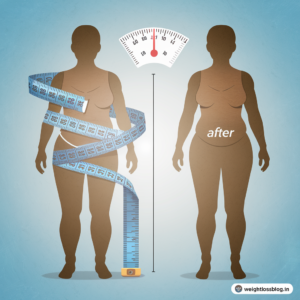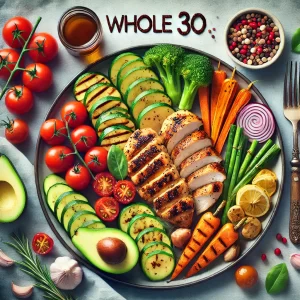The Essential Do’s and Don’ts of the Vegan Diet for Weight Loss
Introduction
The vegan diet is an increasingly popular choice for those looking to lose weight and improve their health while supporting ethical and environmental causes. However, transitioning to a plant-based diet requires careful planning to ensure you’re meeting your nutritional needs while achieving your weight loss goals. This list of do’s and don’ts will help guide  you through the vegan diet and ensure you’re on the right path to success.
you through the vegan diet and ensure you’re on the right path to success.
Do’s of the Vegan Diet
1. Do Focus on Whole, Unprocessed Foods
One of the keys to success on the vegan diet is to focus on whole, unprocessed foods. These foods are naturally nutrient-dense and lower in calories, making them ideal for weight loss. Fill your plate with a variety of vegetables, fruits, whole grains, legumes, and plant-based proteins to ensure you’re getting all the essential vitamins, minerals, and fiber you need.
By avoiding processed vegan foods, which are often high in added sugars, unhealthy fats, and artificial ingredients, you’ll maximize the health benefits of the vegan diet and support sustainable weight loss.
2. Do Include Plant-Based Protein in Every Meal
Protein is essential for weight loss and muscle maintenance, so make sure to include a source of plant-based protein in every meal. Foods like tofu, tempeh, beans, lentils, and quinoa provide high-quality protein without the added calories or saturated fats found in animal products.
Including protein in every meal will help keep you full and satisfied, preventing overeating and supporting your weight loss goals.
3. Do Take Nutritional Supplements
While the vegan diet offers many health benefits, there are certain nutrients that can be difficult to obtain from plant-based foods alone. It’s important to take supplements for essential nutrients like vitamin B12, iron, calcium, and omega-3 fatty acids. Many vegans also benefit from taking a multivitamin to ensure they’re meeting their nutritional needs.
Taking the right supplements will help prevent nutrient deficiencies and support long-term health on the vegan diet.
4. Do Plan Your Meals Ahead of Time
Meal planning is crucial for success on the vegan diet, especially if you’re new to plant-based eating. Planning your meals ahead of time ensures that you have balanced, nutrient-rich options on hand, reducing the temptation to reach for processed foods or non-vegan options.
Prepare meals in bulk and keep healthy snacks like fruits, nuts, and hummus on hand to stay on track with your weight loss goals and avoid impulse eating.
5. Do Stay Hydrated
Proper hydration is essential for overall health and weight loss. Drinking enough water supports digestion, helps flush out toxins, and keeps your energy levels up. Aim for at least 8 glasses of water per day, and consider drinking herbal teas or adding fruit to your water  for extra flavor.
for extra flavor.
Staying hydrated also helps prevent overeating, as thirst is often mistaken for hunger. Keep a water bottle with you throughout the day to ensure you’re getting enough fluids.
Don’ts of the Vegan Diet
1. Don’t Rely on Processed Vegan Foods
While it’s tempting to rely on processed vegan foods like mock meats, vegan cheeses, and packaged snacks, these foods are often high in unhealthy fats, added sugars, and artificial ingredients. They can also be calorie-dense, which may hinder your weight loss efforts.
Focus on whole, plant-based foods like fruits, vegetables, legumes, and whole grains to get the most nutritional benefits and support sustainable weight loss.
2. Don’t Skip Meals
Skipping meals can lead to overeating later in the day and disrupt your metabolism. It’s important to eat regular, balanced meals throughout the day to maintain energy levels and prevent excessive hunger.
Even if you’re not feeling hungry, try to eat three meals a day that include a source of plant-based protein, healthy fats, and complex carbohydrates to keep your metabolism functioning optimally and support weight loss.
3. Don’t Forget About Protein
One of the common challenges of the vegan diet is getting enough protein. While plant-based foods can provide plenty of protein, it’s important to include them in every meal to ensure you’re meeting your daily protein needs.
Skipping protein-rich foods can lead to muscle loss, fatigue, and difficulty maintaining your weight loss. Make sure to include sources of plant-based protein like tofu, tempeh, beans, or lentils in every meal.
4. Don’t Overeat High-Calorie Plant Foods
While foods like nuts, seeds, and avocados are healthy, they are also calorie-dense and can lead to weight gain if eaten in large quantities. Be mindful of portion sizes when consuming high-calorie plant  foods, especially if your goal is weight loss.
foods, especially if your goal is weight loss.
Moderation is key when incorporating these foods into your diet. A small handful of nuts or a few slices of avocado can provide the healthy fats you need without adding too many extra calories.
5. Don’t Neglect Variety
Eating a variety of plant-based foods is essential for meeting all your nutritional needs on the vegan diet. Relying on the same few foods can lead to nutrient deficiencies and make your meals less enjoyable.
Experiment with different vegetables, grains, legumes, and plant-based proteins to ensure you’re getting a wide range of nutrients and keeping your meals interesting and satisfying.
Conclusion
The vegan diet is a highly effective and sustainable way to lose weight while improving overall health and supporting ethical values. By following these essential do’s and don’ts, you can maximize your success on the vegan diet and achieve your weight loss goals while maintaining a balanced, nutritious, and enjoyable eating plan.
Focus on whole, unprocessed foods, include plant-based protein in every meal, and stay hydrated to ensure long-term success on your plant-based journey.